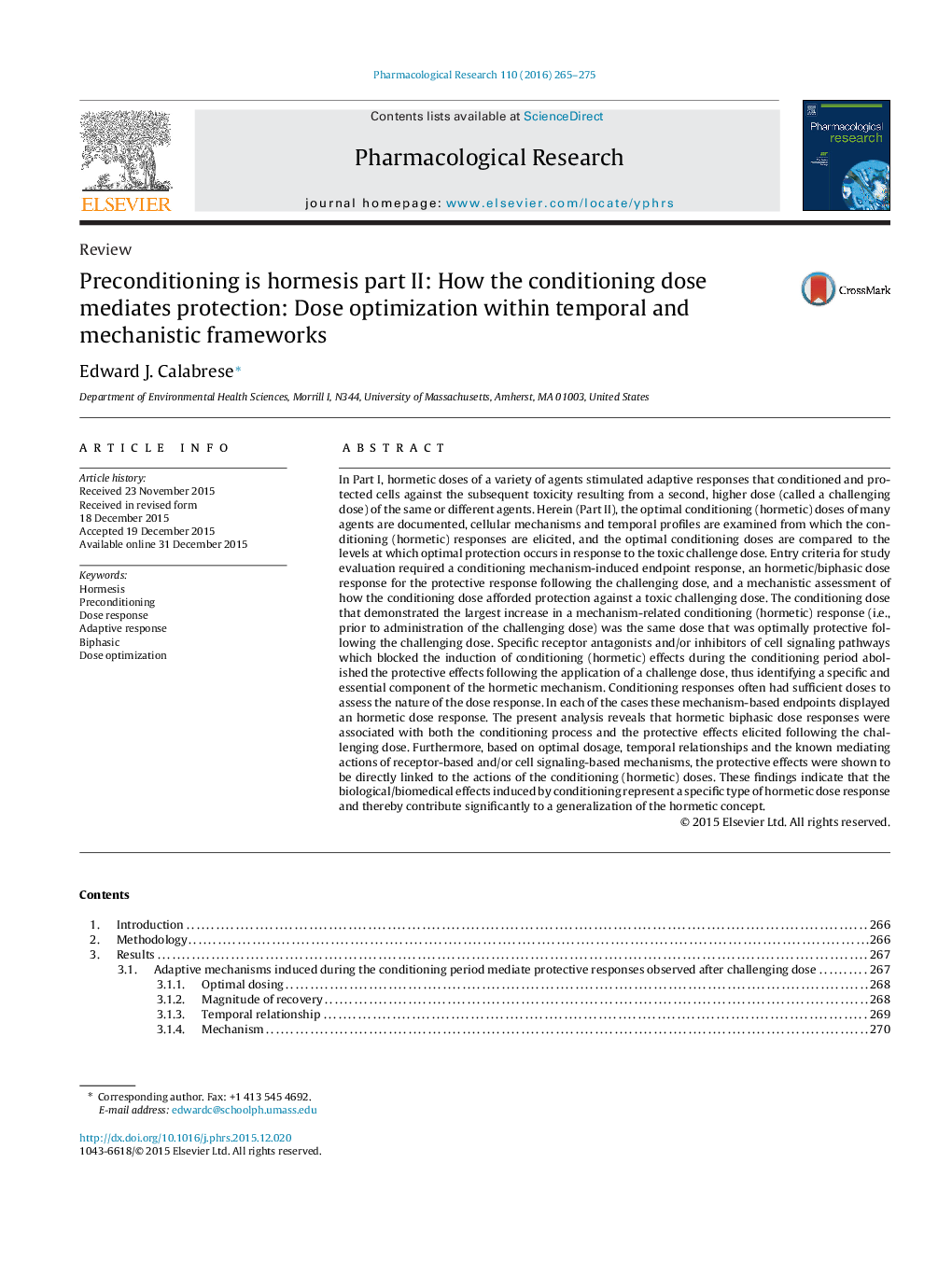| Article ID | Journal | Published Year | Pages | File Type |
|---|---|---|---|---|
| 2561856 | Pharmacological Research | 2016 | 11 Pages |
In Part I, hormetic doses of a variety of agents stimulated adaptive responses that conditioned and protected cells against the subsequent toxicity resulting from a second, higher dose (called a challenging dose) of the same or different agents. Herein (Part II), the optimal conditioning (hormetic) doses of many agents are documented, cellular mechanisms and temporal profiles are examined from which the conditioning (hormetic) responses are elicited, and the optimal conditioning doses are compared to the levels at which optimal protection occurs in response to the toxic challenge dose. Entry criteria for study evaluation required a conditioning mechanism-induced endpoint response, an hormetic/biphasic dose response for the protective response following the challenging dose, and a mechanistic assessment of how the conditioning dose afforded protection against a toxic challenging dose. The conditioning dose that demonstrated the largest increase in a mechanism-related conditioning (hormetic) response (i.e., prior to administration of the challenging dose) was the same dose that was optimally protective following the challenging dose. Specific receptor antagonists and/or inhibitors of cell signaling pathways which blocked the induction of conditioning (hormetic) effects during the conditioning period abolished the protective effects following the application of a challenge dose, thus identifying a specific and essential component of the hormetic mechanism. Conditioning responses often had sufficient doses to assess the nature of the dose response. In each of the cases these mechanism-based endpoints displayed an hormetic dose response. The present analysis reveals that hormetic biphasic dose responses were associated with both the conditioning process and the protective effects elicited following the challenging dose. Furthermore, based on optimal dosage, temporal relationships and the known mediating actions of receptor-based and/or cell signaling-based mechanisms, the protective effects were shown to be directly linked to the actions of the conditioning (hormetic) doses. These findings indicate that the biological/biomedical effects induced by conditioning represent a specific type of hormetic dose response and thereby contribute significantly to a generalization of the hormetic concept.
Graphical abstractFigure optionsDownload full-size imageDownload high-quality image (156 K)Download as PowerPoint slide
